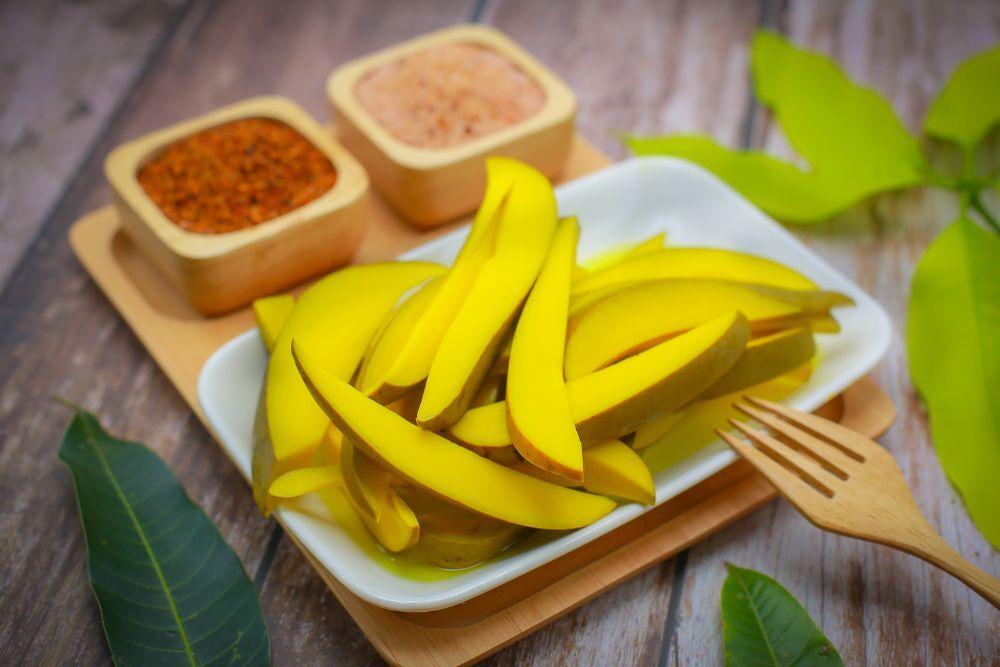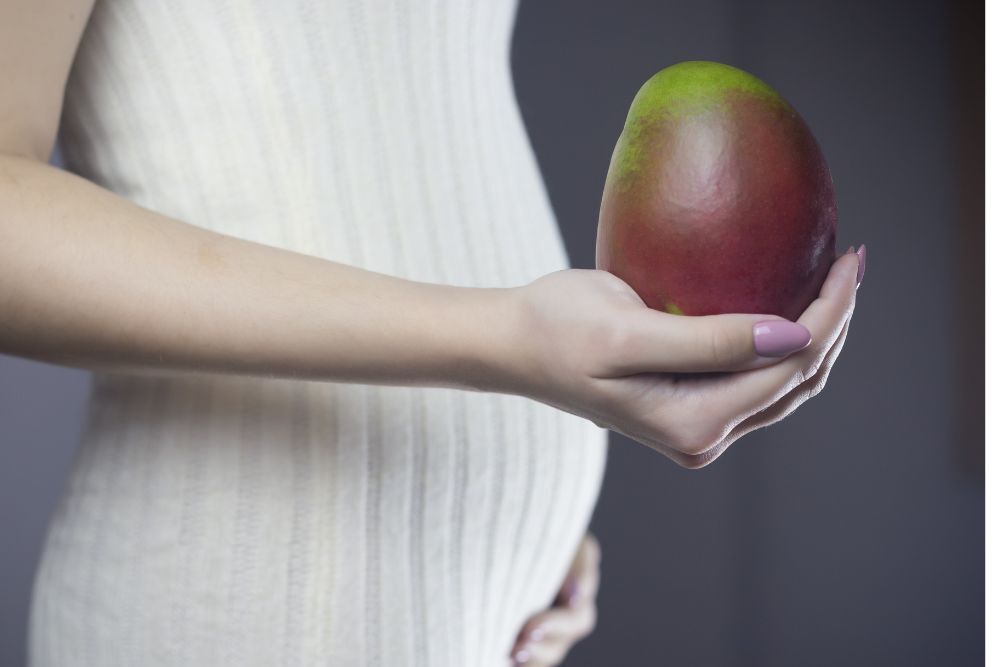There is a notion that eating mangoes during pregnancy can be harmful. Well, is it a myth or is there some shade of truth to it. Let’s find out.
It is true that for many years, mangoes were often picked unripe from trees and then ripened artificially with calcium carbide, which is a dangerous chemical. This practice was common in many parts of the world, including India.
The use of calcium carbide for ripening mangoes has been linked to a number of health problems, including nausea, vomiting, abdominal pain, and even cancer. This may be why some pregnant women have been advised to avoid eating mangoes, as they may be concerned about the potential risks to their unborn child.
However, since 2016, the Indian FDA has banned the use of calcium carbide for artificially ripening mangoes. This ban was put in place to protect the health and safety of consumers, including pregnant women.

It is important to note that properly ripened mangoes are safe to eat during pregnancy, and can provide a number of important nutrients for both the mother and the developing baby.
Here are some findings:
Pregnant women need iron to prevent anaemia, which is a common condition during pregnancy. Even if you eat 1 mango every day, it contribute in increasing your red blood cells count which can be helpful to fight anaemia. A medium-sized mango provides about 0.6 mg of iron, which is about 3% of the recommended daily intake for an adult female. This amount of iron may not be sufficient to prevent or treat anaemia during pregnancy. It is recommended to consult your doctor and maintain a balanced diet of fruits and veggies
It is true that mangoes are a good source of folic acid, which is important for fetal development during pregnancy. Folic acid helps in the formation of the neural tube, which develops into the brain and spinal cord of the fetus. Adequate intake of folic acid during pregnancy can prevent neural tube defects such as spina bifida.
While it is true that mangoes are a good source of dietary fiber, pregnant women should be careful about consuming excessive amounts of any food, including mangoes. Consuming too much of any food during pregnancy can lead to discomfort, indigestion, and other complications
Mangoes are a great source of Vitamin C, which acts as a powerful antioxidant that helps to inhibit the growth of free radicals in the human body. Additionally, the presence of Vitamin C in mangoes can reduce the likelihood of preterm labor.
Mangoes contain a high amount of magnesium, a natural remedy for hypertension that can also prevent preeclampsia. Given that preeclampsia can result in seizures during pregnancy, incorporating mangoes into your diet can be beneficial.
Mangoes can be a helpful remedy for morning sickness, which is a frequently experienced condition during pregnancy, due to their sweet and sour flavor. Additionally, the presence of Vitamin B6 in mangoes may alleviate the discomfort of morning sickness.
By satisfying your sweet tooth with their natural sugars, mangoes can help you avoid succumbing to cravings for artificial sweeteners and preservatives commonly found in processed foods. This in general is beneficial during pregnancy
However, because it is to be noted and given due importance to, that all these factors are indicative. Every individual is different and their reaction to a health situation also varies. Mangoes alone cannot bring a distinctive difference, but it surely contributes to the general wellness of an individual. Thus, an over intake is also not recommended and it should be consulted with one’s personal nutritionist.
